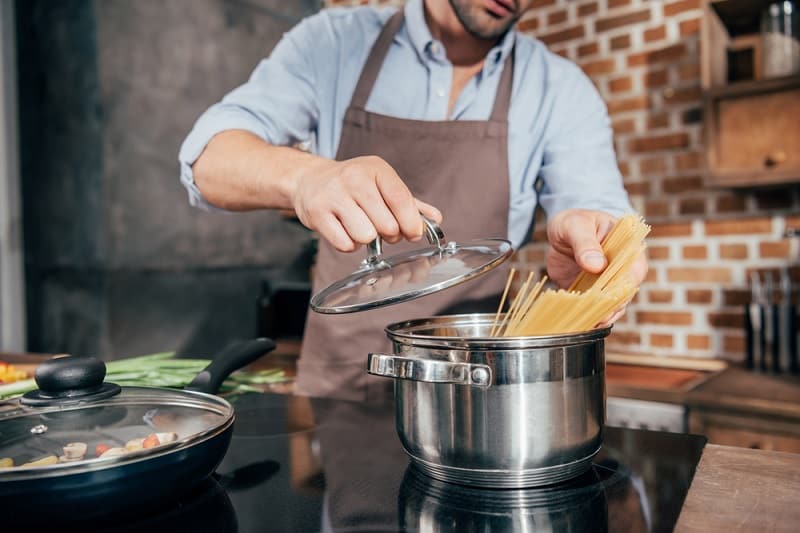What is a Non-Reactive Saucepan and Why Does It Matter?
Written By James Morgan
When you dive into the world of barbecuing and grilling, you often come across various types of cookware. One term that might pop up frequently is 'non-reactive saucepan'. But what is a non-reactive saucepan, and why does it matter, especially for barbecue enthusiasts?
A non-reactive saucepan is made of materials that do not react with acidic or alkaline foods. This is particularly crucial when you're preparing sauces, marinades, and other flavor-packed dishes that could potentially disrupt your barbecue experience. For anyone serious about their grilling game, understanding and using a non-reactive saucepan can elevate the final outcome of their BBQ dishes.

Why Non-Reactive Cookware is Essential in BBQ
When you think of barbecue, you think of bold flavors, tangy marinades, and savory sauces. But did you know that the type of saucepan you use can affect the taste and safety of these flavorings?
What Materials Make a Saucepan Non-Reactive?
Aluminum and copper are reactive materials that can alter the taste and color of your food when used in cooking. On the other hand, non-reactive saucepans are typically made from materials like stainless steel, enamel, and glass. These materials dont react with acidic foods like tomatoes, vinegar, or citrus.
According to a detailed guide on Debuyer USA, stainless steel is one of the most common materials for non-reactive cookware. It's durable, versatile, and doesn't interfere with flavors.
Durability and Safety
One of the key advantages of non-reactive saucepans is their durability. For instance, stainless steel versions are not only resistant to rust but also can withstand high temperatures. This makes them ideal for slow-cooking sauces or simmering marinades which are integral to many barbecue recipes.
In terms of safety, non-reactive saucepans are free from the potential risks associated with reactive materials, such as the leaching of harmful metals into the food. This ensures that youre cooking meals that are both delicious and safe to consume.

Improving Your BBQ Skills with Non-Reactive Cookware
Non-reactive cookware is not just safe; it can also significantly impact the quality of your dishes. By maintaining the integrity of your ingredients, these saucepans help preserve the authentic flavors, which is a game-changer for barbecue enthusiasts.
Precise Temperature Control
Non-reactive saucepans often provide excellent heat distribution and control, which are critical when crafting the perfect sauce or marinade. This control allows you to reduce liquids without burning them, making a world of difference during long barbecue sessions.
For more insights on managing cookware temperatures, check out this guide on wok thickness.

The Humble Saucepans Role in BBQ Preparation
BBQ isn't just about grilling meat; it's an art that involves various cooking techniques, including making sauces. A non-reactive saucepan becomes an essential tool here, ensuring your efforts result in the best flavors without any unwanted metallic or off-tastes.
To learn more about different cookware options for your barbecue needs, visit this article.
Frequently Asked Questions
What foods should be cooked in a non-reactive saucepan?
Any foods that are highly acidic, like tomato-based sauces, citrus marinades, or vinegar-rich dressings, should be cooked in a non-reactive saucepan.
Can I use my reactive saucepans for anything?
While reactive saucepans can be used for low-acid foods, it's safer to limit their use. If your cookware is reactive and shows signs of wear, it might be best to switch to non-reactive options.
Is stainless steel the only material for non-reactive saucepans?
No, other materials like enamel-coated cast iron and glass are also non-reactive and excellent for cooking.
As an Amazon Associate, I earn from qualifying purchases.
Using non-reactive saucepans in your barbecue preparation can significantly enhance your cooking, ensuring that the rich flavors of your painstakingly prepared sauces remain untainted. By investing in the right cookware, including non-reactive saucepans, you ensure that every meal you serve is both safe and delicious.
So next time when someone asks you what is a non-reactive saucepan, you'll know exactly what to say and why it matters.
As an Amazon Associate, I earn from qualifying purchases.



